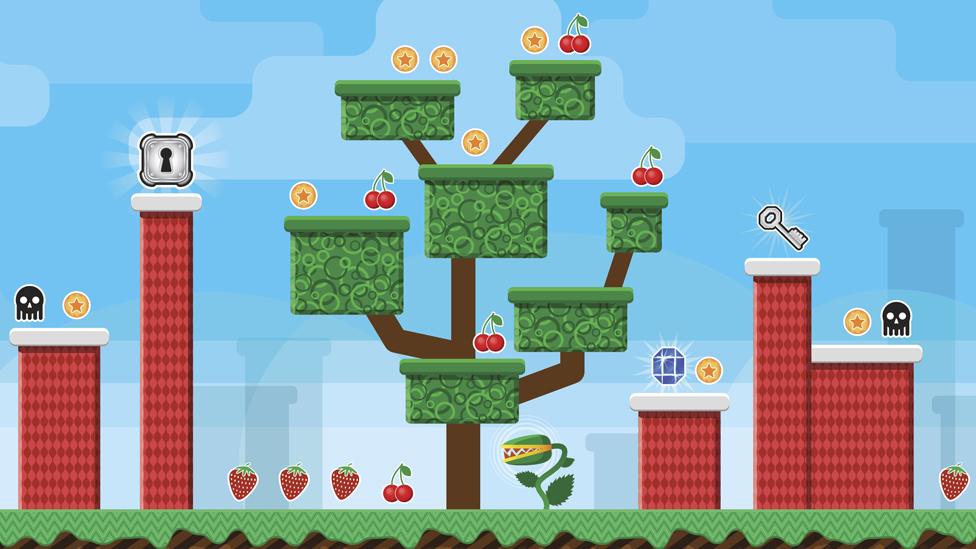Game changers: The players saving money by going retro
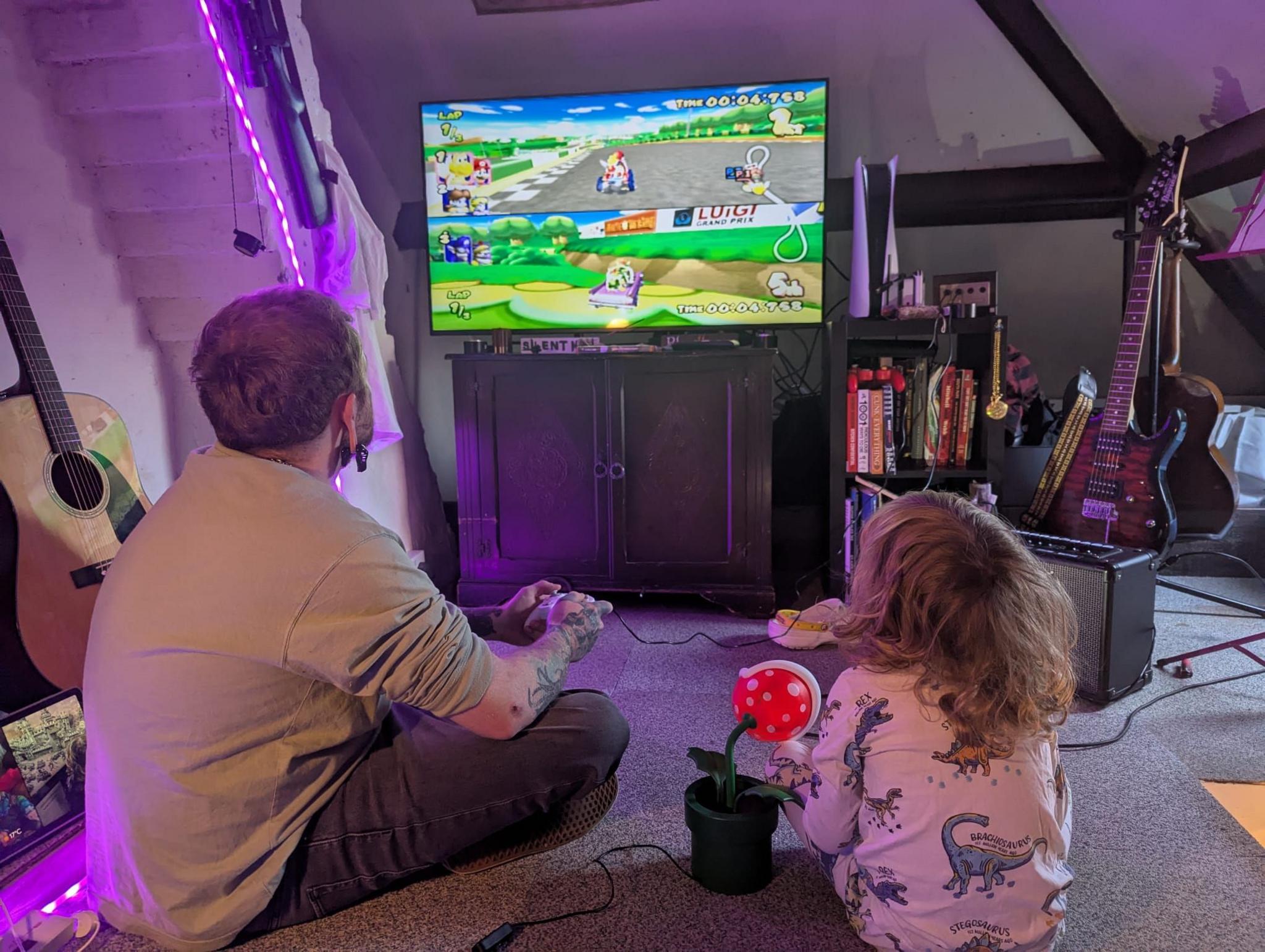
Connor Reynolds and his son play Mario Kart on the Nintendo GameCube
- Published
Video games are hugely popular. But instead of chasing the latest new releases, some gamers are seeking out titles from the 80s or 90s - not just for a hit of nostalgia, but to help with the rising cost of living.
"Retro gaming is quite a big family affair at our house."
Connor Reynolds is browsing the stalls at the Nottingham Gaming Market, external.
The 27-year-old says passing on his love for games from his childhood to his son is "one of the best things about being a dad".
"I've dragged them [my family] with me to have a bit of a blast from the past, nostalgia. A lot of the games from the retro era are two player," he says.
"It's so easy to fire up Mario Kart on the GameCube at home and spend the whole night with the controllers."
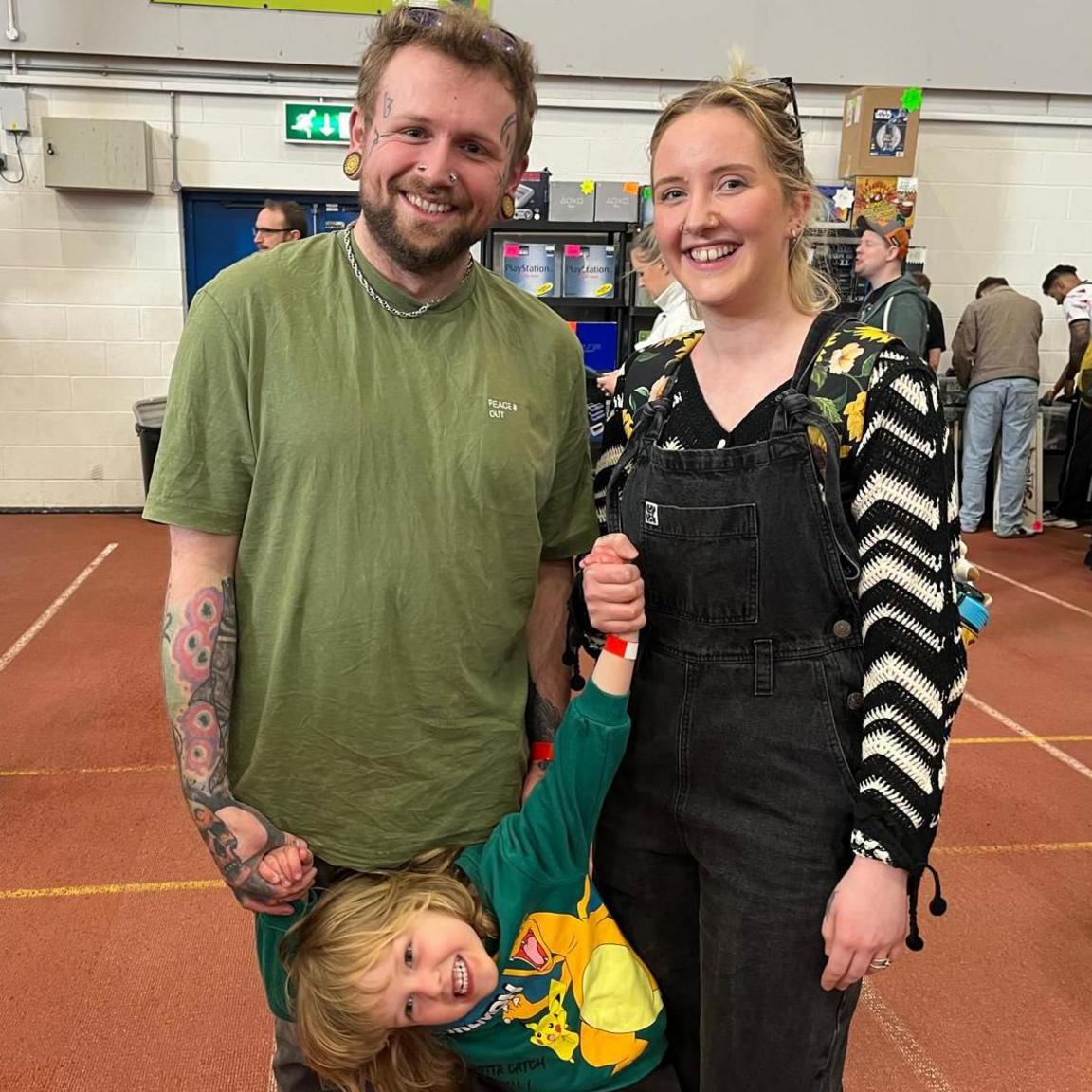
The Reynolds family at the Nottingham Gaming Market
Ella - Connor's partner - has also come along. But she has another motivation for visiting.
"We've not come to spend a load of money but we will find something. The prices seem really reasonable. I've not had to put a load of savings aside to come here," she says.
Some of the games at the market cost as little as £1. In comparison, a newly released game is likely to set you back at least £50.
Are video games getting more expensive?

Andy Spencer and daughter Tabatha share a love of older games
According to gaming website Tech Rapture, external, some triple-A releases have been around the £50-£60 mark since the early 2000s, so over the years they arguably haven't become that much pricier when compared to many other goods.
However, the recent big increases in food and household bills is important context.
Andy Spencer, who runs the Retro Computer Museum, external in Leicester, says "some of the newer games [are] £70, £80, and not a lot of people can afford that - especially with times how they are at the moment".
"I think cost is a lot to do with it. If you've got a Sega Mega Drive, you can pick Sonic the Hedgehog up for £5-£10 and you can play it for days and days and days," he says.
With new games, Andy says you only get one for £50, but "if you're into old games you can pick them up from charity shops - you'll get half a dozen games for £20".
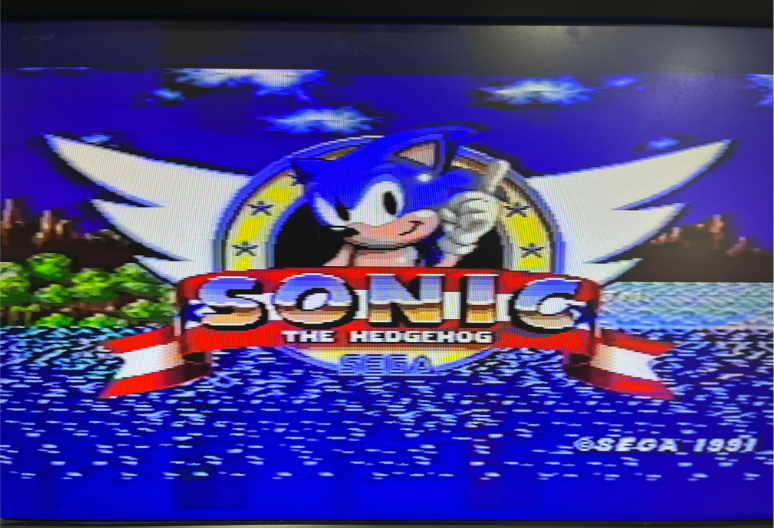
Sonic the Hedgehog - released in 1991 - is a popular retro title
Most popular games at Retro Computer Museum
• Goldeneye (Nintendo 64)
• Mario Kart (Nintendo GameCube)
• Street Fighter II (Nintendo SNES)
• Pacman (Arcade)
• Duck Hunt (Nintendo NES)
• Sonic the Hedgehog (Sega Mega Drive)
• Burnout 2 (Microsoft Xbox)
• Chuckie Egg (BBC Micro)
• Manic Miner (ZX Spectrum)
• Pong (Binotone)
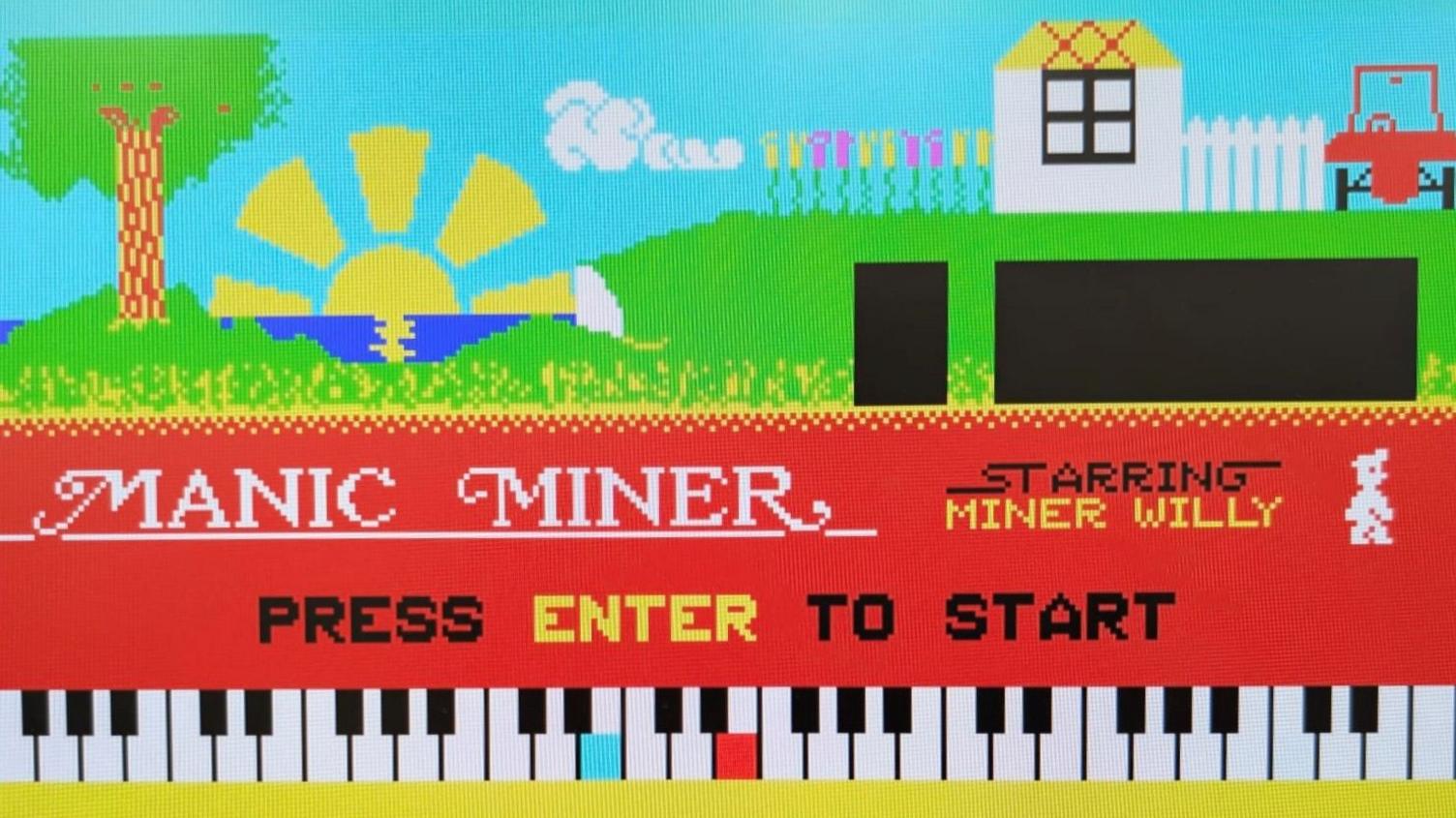
Manic Miner - a ZX Spectrum classic
Many new releases - especially live service games like the hugely-popular Fortnite - have micro transactions or downloadable content, making it possible for a player to ultimately spend hundreds of pounds on a single title.
One of the most hotly anticipated games of all time, Grand Theft Auto 6, is due to be released next year.
Rumours are swirling that it will be the first game with a price tag of $100, and while this may turn out not to be the case, the fact that developments costs have increased (to a reported $1bn in the case of GTA 6, external) means it's safe to assume the price for consumers will continue to creep up.
With all this in mind, it's easy to see why the cheaper alternative of retro games is attractive.
Retro gaming - technical challenges?
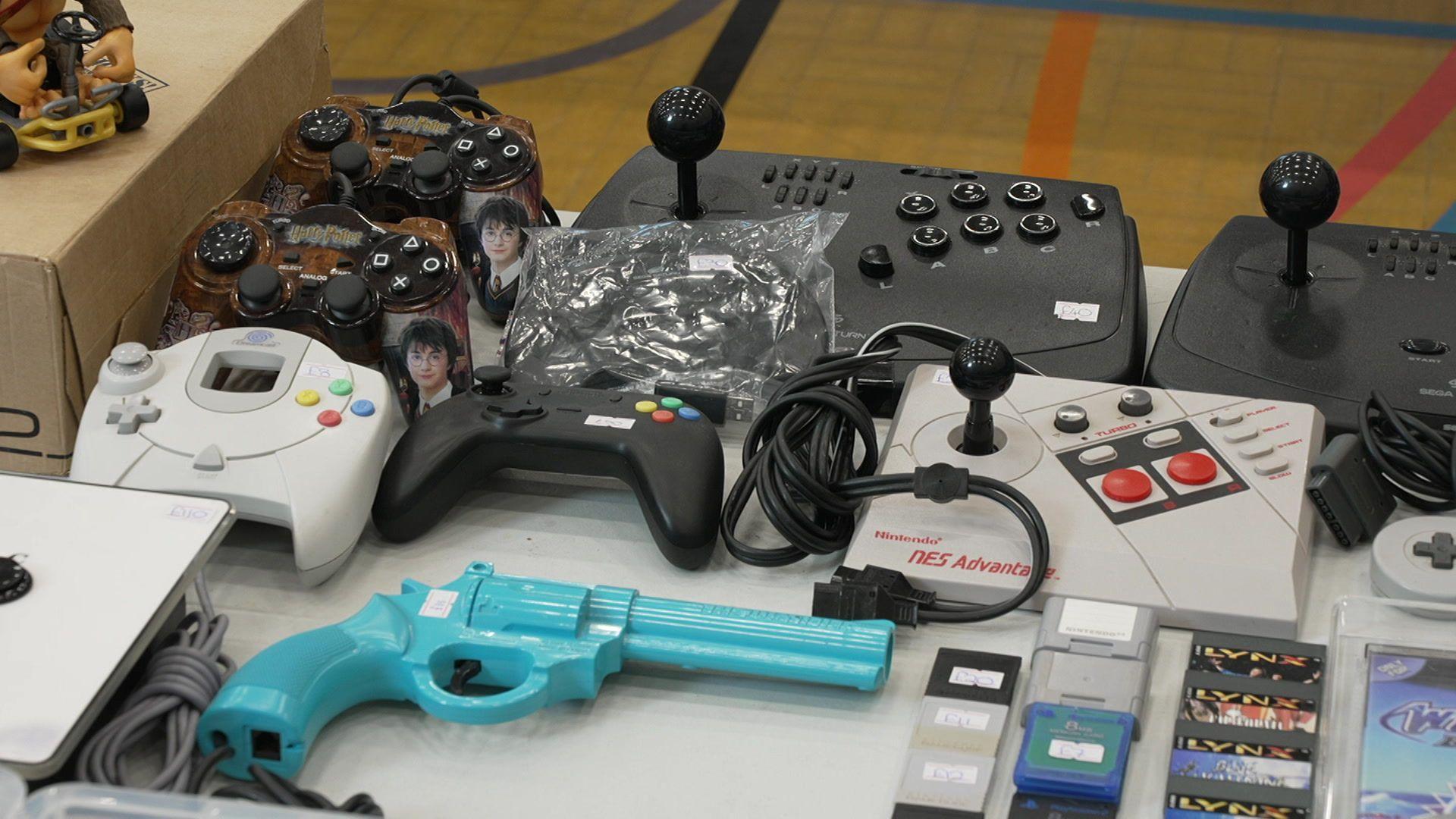
Nottingham Gaming Market only opened last year, but such is the demand that there are now two events this year. The first in April attracted at least 2,000 visitors.
Based in a sports hall on the outskirts of the city, it boasts all manner of retro games-themed merchandise - fluffy toys, figurines, posters and books.
Then there are the games themselves - thousands of them. Case upon case stacked in boxes along tables, with bargain boxes on the floor.
So how easy is it to get into retro gaming?
For some, it's simply a matter of dusting off an old console or computer.
Older hardware works on many modern TVs, so long as they have an aerial connection. If not, adapters are available for less than £10.
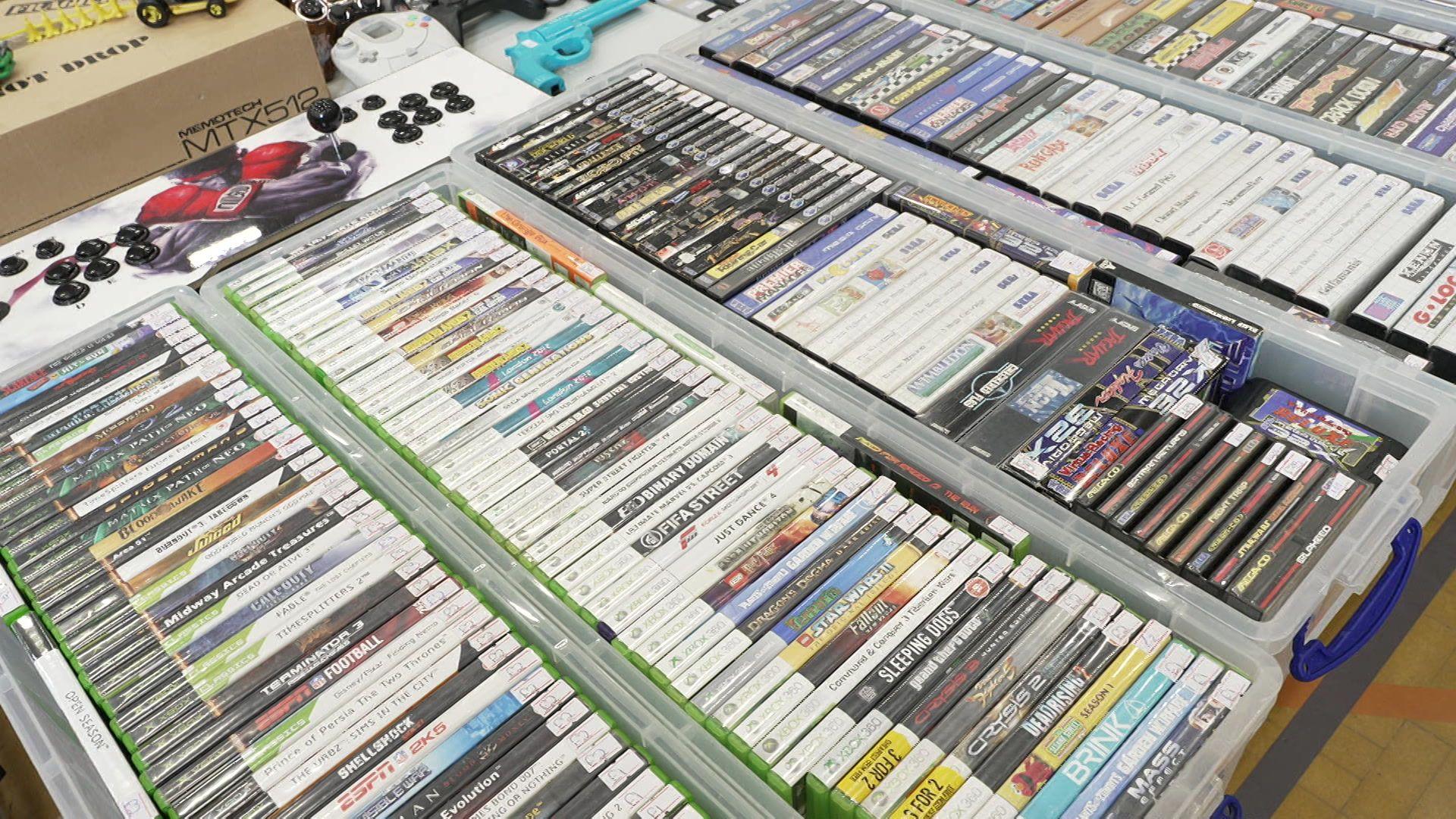
Games at the Nottingham Gaming Market can cost as little as £1
But if you don't happen to have a Sega Mega Drive or Nintendo GameCube packed away in the attic, you can pick one up for very little.
Elliot Scholes, who organises the market, says: "You can get a Mega Drive from £30 onwards, depending on the condition, and an SNES would be from about £40/£50.
"As far as older computers go, the price varies dependent on whether they are boxed, unboxed or modded. Spectrums from £100 to £300, Commodore 64 from £150 to £300. Games can vary from about £5 to over £100."
As for classic games, he says: "Goldeneye goes for around £10 as a loose cartridge, with the complete boxed version being around £30."
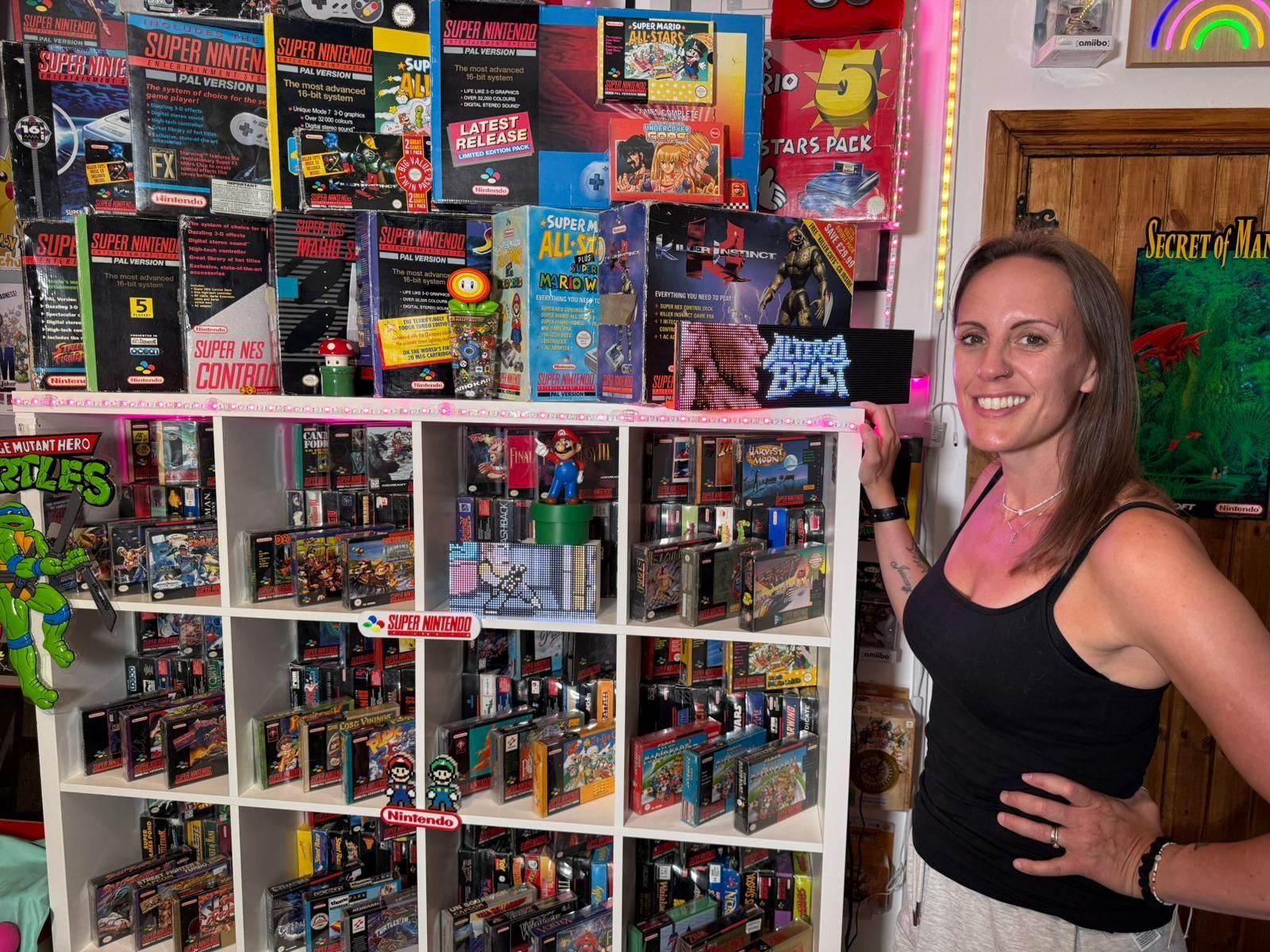
Gemma's collection has taken over two rooms in her house
Retro games present opportunities for collectors too.
Gemma - aka TheGebs24, external - describes it as "a way of life".
Gemma, from Alfreton in Derbyshire, has nearly 100,000 YouTube subscribers, who follow her on the hunt for all things gaming.
Two rooms of her two-bed home are dedicated to retro games.
She says the rooms, branded the Lady Lounge and the Lady Loft, make her feel "safe and happy", and are a place to create her videos.
She has amassed her collection over the last 11 years, and travels the world to hunt down must-have items.
For the average person, choosing an retro game won't break the bank, but Gemma has spent serious money, and owns a number of rare and valuable collector's items.
She says as a kid she could never afford the games she stared at in the shops, but now she "can earn a living online" - which she ploughs back into her retro gaming passion - and she's proud of the investment she has created.
Highlights from Gemma's collection:
Spuds Adventure (Game Boy) - "I came across it in a huge box of games I purchased years ago. A YouTube viewer pointed it out. I had no idea how rare it was. A complete copy will cost you around £1,200-plus"
Snatcher (Mega Drive) - "This is an incredible game by Hideo Kojima, set in a cyberpunk future. It was kindly gifted to me by my best friend Reece, many years ago. It will set you back £700-plus for a complete copy today."
Starwing Competition (SNES) - "Back in 1993, this cart was used in select stores whereby players would attempt to get the highest score across time limited levels. Less than 2,000 copies were produced. Even less are in circulation. Expect to pay £300-plus."
From savings to side hustles
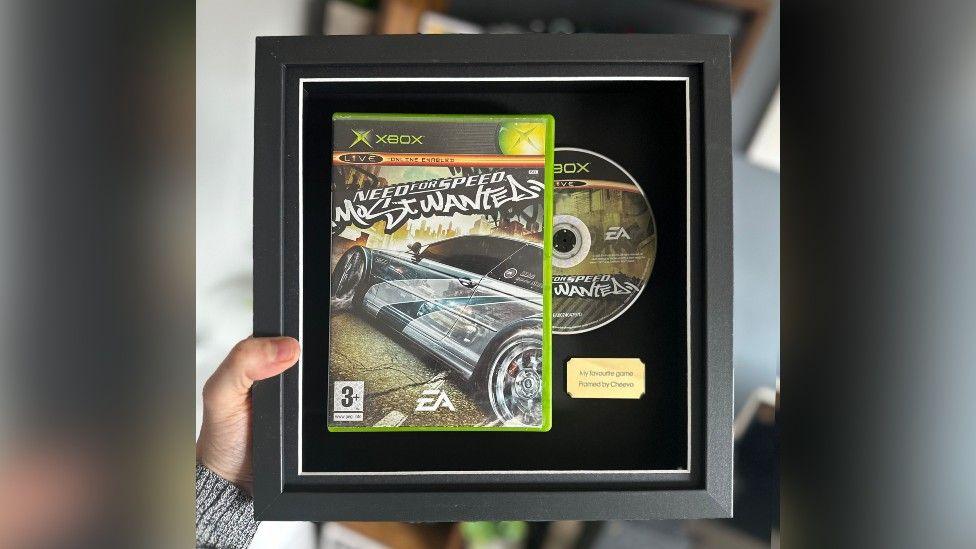
Darren Curtis has a business framing physical copies of games and other media
The popularity of retro gaming has also given rise to some creative side hustles.
Darren Curtis, from Coventry, has set up a business - Cheevo, external - which provides a framing service for people to enjoy their physical copies of their games and DVDs.
He says "digital content doesn't have the same connection" with people as opening a physical case.
"If we switch to a slightly different medium, audio went to digital content with streaming, but now LPs have really made a comeback because people appreciate having the disc, having the artwork, having the experience," he says.
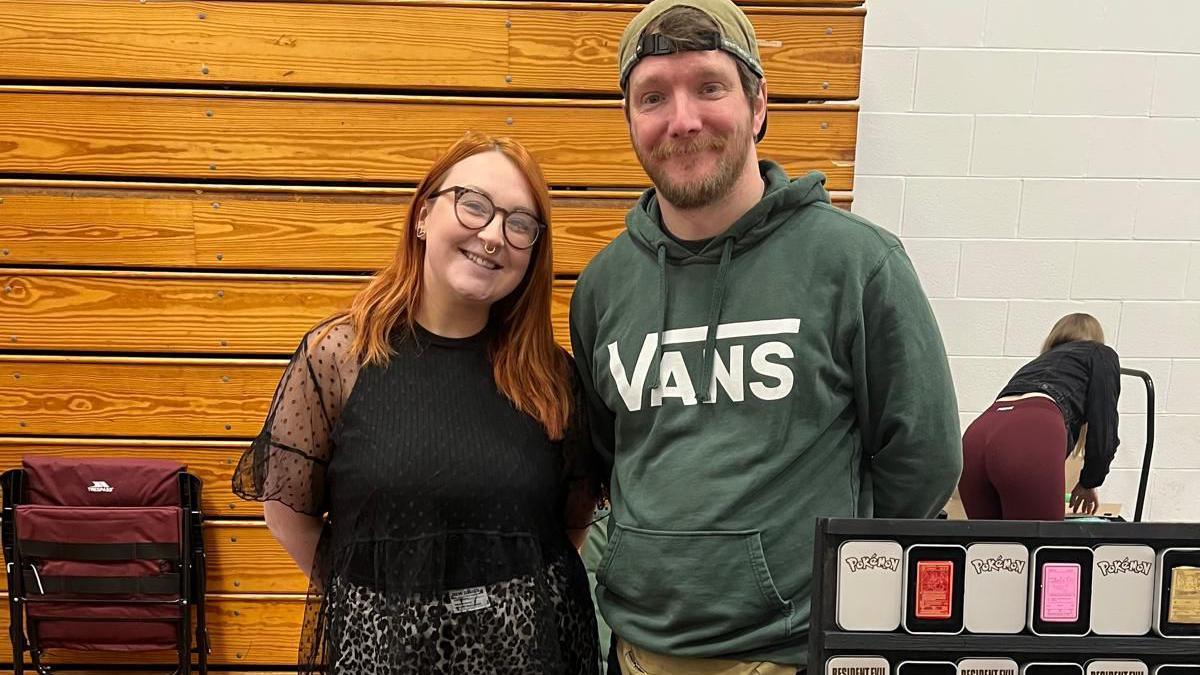
Mike North with his partner at the Nottingham Gaming Market
Joiner Mike North, from Mansfield in Nottinghamshire, also earns extra cash from the connection people feel to games.
For him, it's Resident Evil.
You could say he knows the game like the back of his hand, because he's turned maps from the game into wooden display pieces.
His business, True North Engravings, external, is inspired by post-apocalyptic and survival games.
"I've always been into the zombie and apocalypse themes growing up. I used to play them with my older brothers," he says.
That pastime is something he's carried into adulthood. And is something that many in the community are passing down.
On his stall at the Nottingham Gaming Market, Mike notices how the crowds are multi-generational. "There's a lot of kids here with their mums and dads," he says.
Elliot, who runs the market, agrees.
He says: "Retro gaming is for everyone."
Elliot says people are often driven to play retro out of curiosity and feeling compelled to explore something new.
Of course for some, it is purely about the nostalgia.
Elliot adds: "Retro gaming is always there, it's ever-present, it's just good simple, fun - it's what you remember - it's stories to be told."
Get in touch
Tell us which stories we should cover in Nottingham
Follow BBC Nottingham on Facebook, external, on X, external, or on Instagram, external. Send your story ideas to eastmidsnews@bbc.co.uk, external or via WhatsApp, external on 0808 100 2210.
Related topics
- Published28 June 2017
